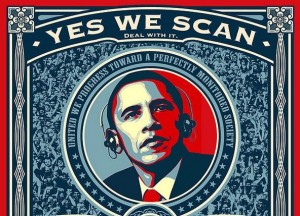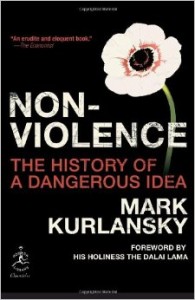 In early 2001, I was doing research for a novel about a radio operator on a Trident nuclear submarine who receives a mysterious signal from what appears to be an extra-terrestrial source and subsequently finds himself at the center of an international and [possibly] interplanetary crisis.
In early 2001, I was doing research for a novel about a radio operator on a Trident nuclear submarine who receives a mysterious signal from what appears to be an extra-terrestrial source and subsequently finds himself at the center of an international and [possibly] interplanetary crisis.
As part of my research, I spent time studying America’s intelligence infrastructure, including the CIA, FBI, military intelligence and the NSA. Seeing as the novel focused on encryption and decryption of coded messages, I focused primarily on the NSA (National Security Agency), America’s chief code-making and code-breaking entity.
Unfortunately, for one reason or another, that novel never got beyond the first few chapters. However, I found the research fascinating, and it has stuck with me ever since. Believe it or not, at that time (four months before the 9/11 attacks), only two books had been written about the NSA: The Puzzle Palace and Body of Secrets, both by James Bamford. Body of Secrets in particular–which was based on a slew of recently released FOA documents–read like a secret history of the 20th century post WWII. It was full of captivating tales of skullduggery and secret ops. Perhaps the most amazing story had to do with a hastily abandoned Soviet listening post located on a disintegrating ice floe near the North Pole. Some daring code-breakers parachuted onto the floe, gathered as much intel as their backpacks could carry, and then escaped by floating up weather balloons attached to cables, which where then hooked by airplanes that whisked the men off to a waiting ship. (Batman performs a similar stunt in The Dark Knight Rises below.)
However, my primary takeaway from Bamford’s work was that rather than herald such tales, the NSA would prefer that no one knew about them or the agency, itself, hence its nickname, “No Such Agency.” Truth be told, before I began my research, I had never heard of the NSA, much less what it did, and I think that was probably true of most people at the time.
Thirteen years later, everything has changed. Not only is virtually everyone aware that the NSA exists, they have adopted an attitude of fear and loathing toward the agency, leading to a number of new, informal monikers: “National Snoops Agency,” and “Neocon Spying Agency,” “National Socialist Agency,” to name a few. President Obama even delivered a speech to the nation recently that focused almost exclusively on the once invisible agency
What brought about this transition? Perhaps a better question is “Who?” The answer, of course, is Edward Snowden, the former NSA contractor who, in late 2012, leaked thousands of top secret documents that disclosed details of America’s vast global surveillance apparatus. This has led not only to a pile of books on the NSA and America’s spy apparatus as a whole, it has virtually guaranteed the NSA will continue to generate front page headlines for potentially years to come.
Goodbye “No Such Agency,” hello “New Snowden Age.”
Alarmed at discovering the US government is spying on pretty much everyone and everything, many regard Snowden’s revelation as a huge step backward–and Snowden, himself, as a traitor. However, I don’t see it that way at all. As daunting as it is to realize these very words are likely being scooped up by the NSA right now–assuming mere mention of the NSA is enough to trigger their bots–I consider the fact that I know this as real progress.
Not surprisingly, those who prefer to lurk in the shadows are outraged when someone shines a light on their activities, arguing that secrecy is the key to keeping America–and the world–safe. However, the rest of us are becoming increasingly skeptical of such arguments, due in large part to people like Snowden and author Jeremy Scahill (Dirty Wars), who have revealed that many of the problems the snoops are supposedly trying to solve were virtually created by these very same agencies in the first place.
We’re still a long ways from embracing my preferred NSA acronym–“No Snooping Allowed.” But with the snoops, themselves, finding it increasingly difficult to hide, I think it’s only a matter of time.











